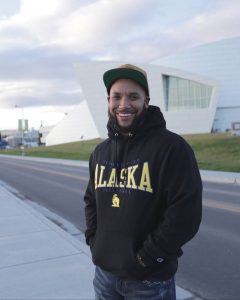Description
March 13, 2025 | 12:00-1:00 PM
Description:
The increasing dominance of fentanyl in the American drug supply has made successful transition to buprenorphine more difficult than previous transitions from heroin or prescription opioids. Illicitly manufactured fentanyl’s (IMF) lipophilicity and large volume of distribution have proved particularly challenging in combination with buprenorphine.
While recommendations have been made from studies in hospital and ER settings, there is a near absence of data for outpatient care where the vast majority of these transitions occur. Yet the differences among these settings are stark. For example, while inpatient case studies report high rates of success for low-dose buprenorphine transitions, the first cohort study of outpatients found only ~20% retention at 30 days (Suen, 2025).
In the outpatient setting, patients can experience a spectrum of negative outcomes as they attempt transition from IMF to buprenorphine. The most common difficulty is some degree of withdrawal. Patients may also experience ongoing withdrawal symptoms and cravings even after buprenorphine is titrated to the FDA-advised maximum dose of 24 mg per day.
For these reasons, clinicians should have detailed conversations about this transition and the choices patients have in selecting an approach. However, current literature and guidelines do not yet have practical examples of the informed shared decision-making now required in the outpatient setting. The purpose of our session is to provide attendees with shared decision-making tools to facilitate the best outcome for each patient. These tools are informed by our retrospective study of over 4,000 patients and our ongoing efforts to understand their needs and preferences.
Learning Objectives:
- Describe the challenges of outpatient transitions from fentanyl to buprenorphine
- Identify elements of shared decision-making and informed choice that better support patients in this transition.
- Compare and contrast shared decision-making approaches for patients with various needs and preferences
Presenters:
 Wesley Brewington, CPC, CDC II, NCPRSS
Wesley Brewington, CPC, CDC II, NCPRSS
Peer Recovery Specialist
Wes is a dedicated advocate for individuals in recovery, with a powerful story of transformation. Struggling with substance misuse for many years, he faced the devastating consequences of addiction, including homelessness, loss of freedom, and a deep sense of hopelessness. His turning point came on February 6, 2013, when he hit rock bottom and was offered a 15-year prison sentence. In that moment of despair, Wes made a life-changing promise to himself to seek help.
Today Wesley is a nationally certified peer recovery support specialist dedicated to empowering individuals on their journey to recovery. Drawing from his own lived experiences, he offers hope and inspiration, demonstrating that recovery is not only achievable but also transformative. With a passion for helping others navigate their challenges, Wesley provides guidance and support, fostering resilience and a sense of community among those seeking to overcome adversity.
 Drew Mossman, FNP, PMHNP
Drew Mossman, FNP, PMHNP
Team Clinician
Drew Mossman, FNP, PMHNP is a clinician and supervisor with Boulder Care. He is a naturally curious person who loves exploring both the human mind and the natural world. His free time is fi lled with outdoor adventures with his wife and their two young kids. His career focuses on low barrier care for people with problematic relationships with substances.
 Danielle Bellosi, NCRPSS, CPRC
Danielle Bellosi, NCRPSS, CPRC
Peer Recovery Specialist
Danielle Bellosi is a Nationally Certified Peer Recovery Support Specialist as well as a Certified Professional Recovery Coach. She has been in the recovery industry for over a decade and is currently employed with Boulder Care as a Peer Supervisor. In Danielle’s free time she enjoys hiking, anything outdoors really, spending time with her family and friends as well as yoga and meditation.
 Stephen Martin, MD, EdM
Stephen Martin, MD, EdM
Medical Director for Research, Education, and Quality
Steve has been part of Boulder Care for over six years. Board certified in Family Medicine and Addiction Medicine, he is also a Professor of Family Medicine and Community Health at UMass Chan Medical School. He has been a rural primary care physician for nearly 20 years, beginning as a National Health Service Corps Scholar, Steve is a long-time admirer of Maine’s efforts to helps people with substance use disorders!
Audience:
Prescribing Clinicians and their teams
Continuing Medical Education:
This activity has been planned and implemented in accordance with the accreditation requirements and policies of the Accreditation Council for Continuing Medical Education (ACCME) through the joint providership of the Hanley Center for Health Leadership and Education and CCSME. The Hanley Center for Health Leadership and Education is accredited by the Maine Medical Association Committee on Continuing Medical Education and Accreditation to provide continuing medical education for physicians.
The Hanley Center for Health Leadership and Education designates this regularly scheduled series for a maximum of 1 AMA PRA Category 1 Credit ™. Physicians should only claim credit commensurate with the extent of their participation in the activity.
*Nurses and Nurse Practitioners will be awarded a certificate of participation with a maximum of 1 AMA PRA Category 1 Credit ™.
Contact Hours
1 contact hours for social workers, licensed clinical professional counselors, and behavioral health professionals.
1 Category 1 Contact hours for psychologists. CCSME is a pre-approved sponsor and provider of Professional Education Activities for Psychologists.
1 contact hours for Alcohol and Drug Counselors pending approval by the Maine Board of Alcohol and Drug Counselors
1 contract hours CHES. CCSME is a designated provider of continuing education contact hours (CECH) in health education by the National Commission of Health Education Credentialing, Inc.





